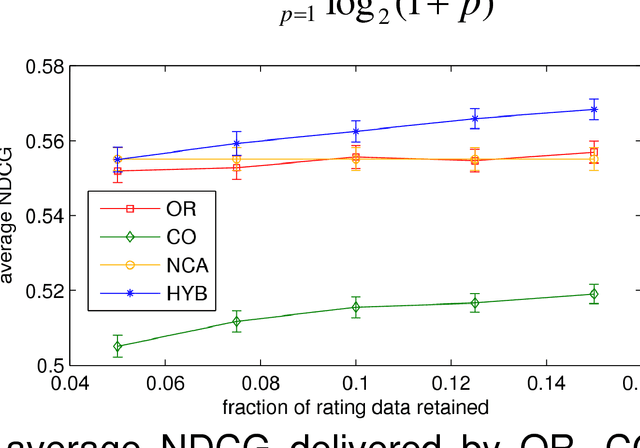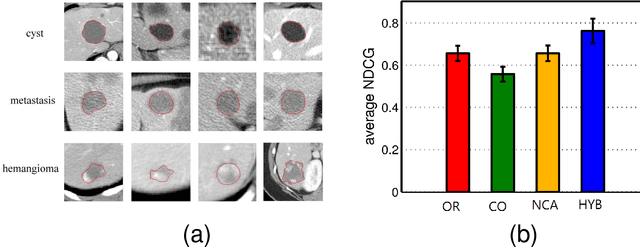Yi-Hao Kao
Learning a Factor Model via Regularized PCA
Feb 24, 2013



Abstract:We consider the problem of learning a linear factor model. We propose a regularized form of principal component analysis (PCA) and demonstrate through experiments with synthetic and real data the superiority of resulting estimates to those produced by pre-existing factor analysis approaches. We also establish theoretical results that explain how our algorithm corrects the biases induced by conventional approaches. An important feature of our algorithm is that its computational requirements are similar to those of PCA, which enjoys wide use in large part due to its efficiency.
A Hybrid Method for Distance Metric Learning
Jun 29, 2012

Abstract:We consider the problem of learning a measure of distance among vectors in a feature space and propose a hybrid method that simultaneously learns from similarity ratings assigned to pairs of vectors and class labels assigned to individual vectors. Our method is based on a generative model in which class labels can provide information that is not encoded in feature vectors but yet relates to perceived similarity between objects. Experiments with synthetic data as well as a real medical image retrieval problem demonstrate that leveraging class labels through use of our method improves retrieval performance significantly.
Directed Time Series Regression for Control
Jun 26, 2012



Abstract:We propose directed time series regression, a new approach to estimating parameters of time-series models for use in certainty equivalent model predictive control. The approach combines merits of least squares regression and empirical optimization. Through a computational study involving a stochastic version of a well known inverted pendulum balancing problem, we demonstrate that directed time series regression can generate significant improvements in controller performance over either of the aforementioned alternatives.
 Add to Chrome
Add to Chrome Add to Firefox
Add to Firefox Add to Edge
Add to Edge